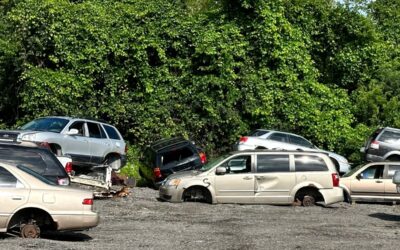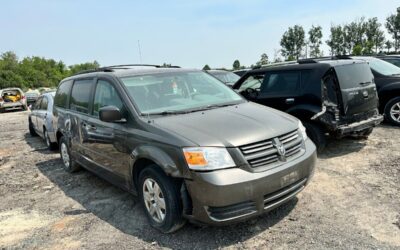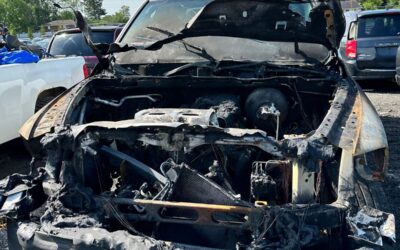Introduction
If you plan to buy a used car in Canada, knowing the vehicle’s history is essential. A vehicle history report will provide you with important information such as accident reports, lien information, service information, ownership history, and others.
While most services charge for full reports, there are still several reliable ways to get basic or partial vehicle history reports for free. Please continue reading to learn how you can obtain a free vehicle history report in Canada, what it includes, and where to find it.
What Is A Vehicle History Report?
A vehicle history report (VHR) is a detailed document that provides a record of a vehicle’s past based on its Vehicle Identification Number (VIN). It helps used car buyers make informed and confident decisions.
Common details in a report:
-
- Previous owners
- Accident history
- Title status
- Lien records
- Registration history
- Service and maintenance data
- Odometer readings
- Insurance claims
Not all free reports will show everything. Some platforms give basic reports, while others offer a preview before you pay for a detailed one.
Why Should You Always Check Vehicle History?
Purchasing a used car without conducting a history check is a gamble. The car may have been involved in major accidents, the odometer rolled back, or it may have liens on it that have not been paid. You could face unexpected issues or financial loss later on.
A free report helps you:
-
- Avoid cars with serious damage
- Spot possible fraud
- Confirm the seller’s claims
- Check if the car was stolen or salvaged
- See if there’s a lien against the vehicle
Even a basic free vehicle history report can reveal red flags and help you avoid a bad deal.
Free Vehicle History Report Sources In Canada
1. CARFAX Canada – Free VIN Check
CARFAX Canada offers a free VIN decoder tool that shows limited vehicle history. It won’t give a full report, but it shows basic data like:
-
- Number of records available
- Type of records (accidents, registration, etc.)
- Country of origin
- Odometer reading alerts
This helps you decide whether it’s worth buying the full report.
How to use:
- Get the 17-digit VIN from the vehicle (on the dashboard or registration papers).
- Enter it on CARFAX’s VIN Decoder.
- See the summary and record types.
2. Vehicle Identification Number (VIN) Search via Transport Canada
Transport Canada allows you to check vehicle recalls using the VIN. This won’t give you a full history report, but it will show if the vehicle has any active safety-related recalls, which is helpful information.
What you’ll get:
-
- List of outstanding recalls
- Recall descriptions
- Recommended actions to fix them
3. Provincial Used Car Listing Platforms (Dealer Sites)
Some dealer websites or online marketplaces provide free history reports for listed vehicles to attract buyers. These reports are often provided through partnerships with CARFAX or AutoCheck.
Examples:
-
- AutoTrader.ca
- Clutch.ca
- CanadaDrives.ca
Steps:
-
- Find a listing for a car.
- Look for a link or tab that says “Free CARFAX Report” or “Vehicle History.”
- Click it and then download or view the report.
4. AutoCheck Free VIN Check (US Imports)
If you are purchasing a car that has been imported from the U.S. to Canada, AutoCheck offers a free summary on VIN checks that is also valid for U.S.-registered vehicles.
Note: This feature is useful only for vehicles with a U.S. registration or ownership history.. The free version only tells you how many records exist, not the full data.
5. ICBC Vehicle Claims History (For B.C. Vehicles Only)
If the used car was registered in British Columbia, you can request a free claims history report through ICBC.
You need:
-
- VIN
- Contact details
What you get:
-
- Date and type of past claims
- Repair amounts (for insured damages in B.C.)
This service only applies to vehicles that were insured in British Columbia.
6. Lender or Bank May Provide A Free Report
When financing a used vehicle through a lender, some banks or credit unions may include a free CARFAX or similar report as part of the loan process. Ask the bank if it may be able to provide a report before completing the deal.
What To Exclude From A Free Report?
While free reports are helpful, they often lack important details. Here is what you may be missing unless you purchase a full report:
-
- Detailed accident reports
- Lien information across provinces
- Service records
- Prior owner names/addresses
- Full registration and ownership history
Always read the disclaimer on the free report. If the basic info shows red flags, consider buying the full report from CARFAX Canada or another paid service.
What To Do If You Find A Lien Or Accident Record?
If your free vehicle report shows a past accident or lien, take these steps:
For Accident Records:
-
- Ask the seller for repair receipts.
- Get a mechanic to inspect the damage.
- Watch out for frame or flood damage.
For Liens:
-
- Use a paid CARFAX report or check the provincial lien registry (such as the PPSA).
- Ask the seller to clear the lien before purchase.
- Never buy a car with an active lien unless you’re sure it will be discharged.
Tips Before Depending on Free Reports
Always verify other sources. A report can miss things another report has.
-
- Check the VIN on the report against the car and the registration papers.
- Free reports are an excellent first step for initial screening. If you’re serious about buying the car, always follow up with a full report.
- Use the reports in conjunction with a pre-purchase inspection with a certified mechanic.
Paid Reports: Are They Worth It?
Yes, in most cases. A paid CARFAX Canada report (about $60) provides:
-
- Complete accident history
- Lien checks in all provinces
- Registration and branding status
- Import/export data
- Recall and service records
Final Thoughts
Free vehicle history reports in Canada can help you shortlist used cars and identify potential red flags early in the buying process. You can use a free VIN check at CARFAX, ICBC claims history (if you live in B.C.), and the recall databases as entry points. But if you want complete peace of mind before making any payment, consider buying a full report. Even a little effort at this stage helps protect your money and steer you away from problematic vehicles.





